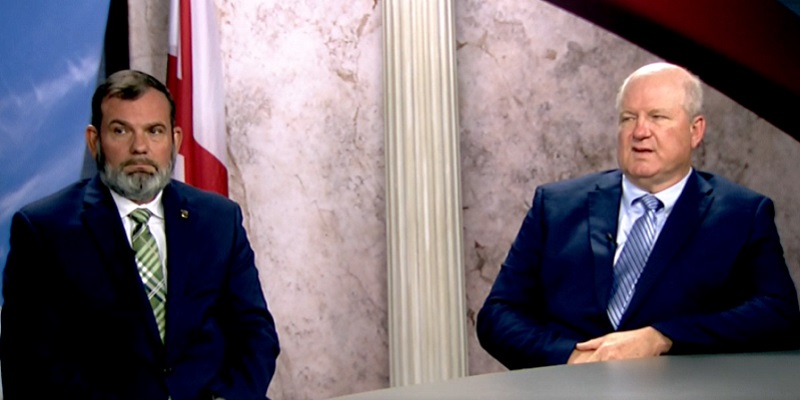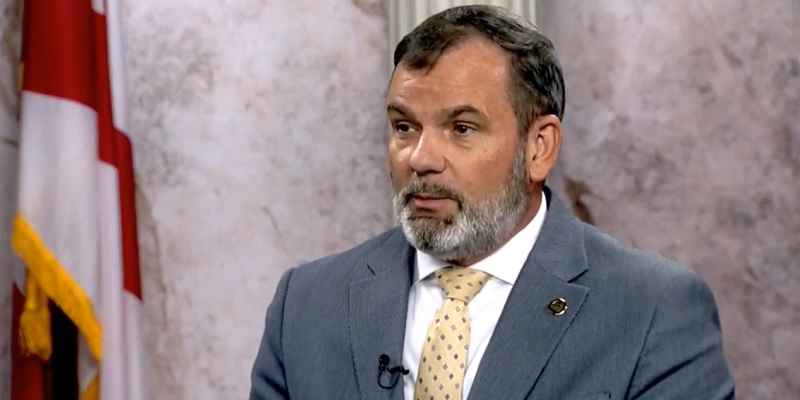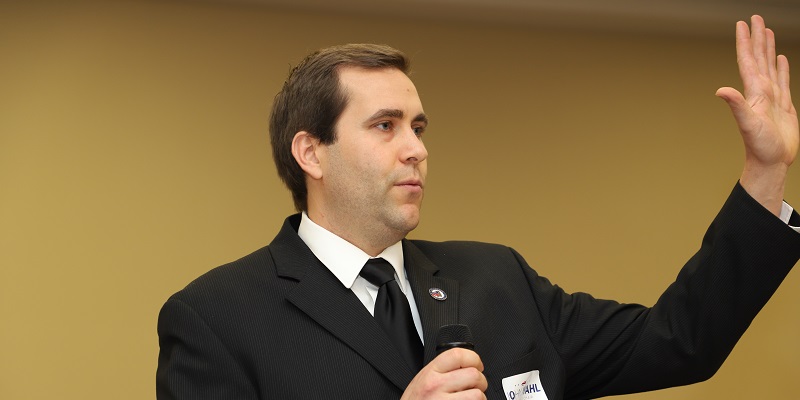Earlier this month, a head-on collision just north of Mobile on U.S. Highway 45 killed four, including a couple and an infant child. For years, those types of accidents have plagued the narrow stretch of roadway from the Alabama-Mississippi state line to Prichard that has been neglected by administration after administration over the past half-century.
Last week, State Reps. Brett Easterbrook (R-Fruitdale) and Shane Stringer (R-Citronelle) joined other lawmakers at a press conference to draw attention to this problem area. Despite coverage in the Mobile media and an appearance on Alabama Public Television’s “Capitol Journal,” their pleas have not been acknowledged by Alabama Department of Transportation (ALDOT) officials or the Ivey administration.
On Tuesday, both Easterbrook and Stringer appeared on Mobile radio’s FM Talk 106.5 to discuss the lack of responsiveness from state government’s upper echelons.
Easterbrook told FM Talk 106.5’s “The Jeff Poor Show” that he had sought a meeting with ALDOT now that he had the support of the entire Mobile County delegation and a portion of the Baldwin County delegation.
“We’ve asked for a meeting,” Easterbrook said. “We still don’t have a meeting. We’ve had meetings — meeting after meeting after meeting. We’ve asked for another one since all of the Mobile delegation signed a letter. I sent a letter. Part of the Baldwin County delegation signed a letter requesting something be done with 45. We’ve requested a meeting for that. So far, we don’t have one.”
Stringer later told FM Talk 106.5’s “Midday Mobile” he did hear from ALDOT, only to be told about an error in his data, which he had stated a causality count over the last five years on the stretch of roadway as 73 when ALDOT claimed it was only 63. Otherwise, Stringer said the responsiveness left much to be desired.
“You know, like I told someone, I’m elected by a district to represent them and to bring the needs of my district to Montgomery,” he said. “I have been doing that for two-and-a-half years on deaf ears. And then, it really frustrated me. I would have loved a call from ALDOT or the Governor’s office asking to meet with me, and let’s talk about this to see how — even if it is a long-term plan of how we’re going to tackle this. But instead, I’ve requested a meeting with the Governor. That’s not been set up yet. We’re going on our second week waiting on that. Instead, I get one call from ALDOT to conflict the number of deaths. And that was extremely frustrating.”
“That’s a problem within itself,” Stringer added. “Why would that be an issue? Why not just call and say, ‘Hey, let’s sit down and work on this, and come up with a solution. Let’s come up with a plan — you know, some kind of long-term plan. Like I told them, it’s like everything in life, when something is important to you, you find a way to make it happen. And this is not important to Montgomery. When this becomes important, whenever one of their loved ones or their family members get killed on this road, it will become a priority and they’ll start laying some asphalt. But until then, we’re going to keep kicking the can down the road.”
The Mobile County lawmaker suggested taking legislative action to ensure public safety figures into the Alabama Department of Transportation’s calculus when prioritizing road and bridge projects.
“That’s exactly what I asked the ALDOT employee: Does that make it any better? Does that make it better that it could be 63 instead of 73? I just don’t understand it,” he stated. “I can’t wrap my brain around — you know, I’ve even considered looking at legislation of trying to make it where the deadliest highway per mile per capita has to be on top of the priority list. Something has got to be done because everything that I and Representative Easterbrook have done lately, and [State Sen.] Jack Williams, seems to be falling on deaf ears.”
Easterbrook suggested a redoing of the agency, which since its inception has often been dominated by politics.
“ALDOT needs to be completely redone,” he said. “It should be done like the Port Authority so that it is not a political situation. Every governor wants their ALDOT director. Plans completely change when a governor is worried about getting elected, so guess where they’re going to spend their money? Where the most people are at. An ALDOT director should be hired. Hire the right one. And they should not be changed every four years or every eight years. There’s no way to have long-term plans.”
Easterbrook said he would not be opposed to patterning the Alabama Department of Transportation governance after Mississippi, which elects commissioners who determine the agency’s director.
@Jeff_Poor is a graduate of Auburn University and the University of South Alabama, the editor of Breitbart TV, a columnist for Mobile’s Lagniappe Weekly, and host of Mobile’s “The Jeff Poor Show” from 9 a.m.-12 p.m. on FM Talk 106.5.













